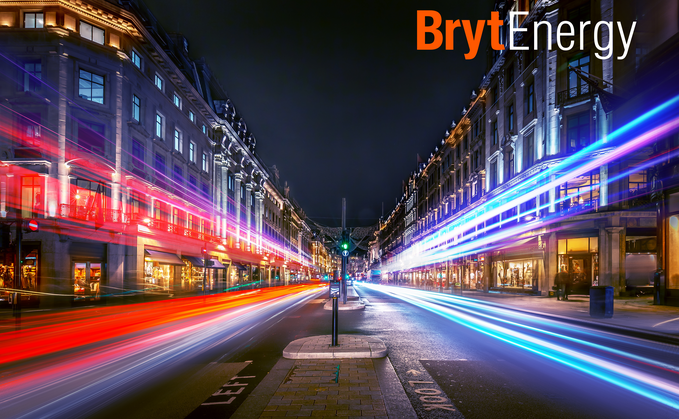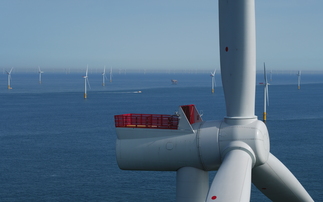
Partner Content: Getting to grips with data in business operations, collaboration, and becoming a more engaged energy user can all bring financial rewards, argues Bryt Energy
Awareness of the net zero energy transition (the move from fossil fuels to renewables) has been growing in recent years. With the effects of climate change becoming increasingly visible, strong and sustained reductions in greenhouse gas emissions are necessary to minimise further impact.
This isn't a new concept for businesses, who are now increasingly recognising their responsibility in the transition to net zero. After all, businesses account for 18 per cent of the UK's overall carbon emissions.
What isn't so well known, however, is the number and scale of opportunities available to businesses prepared to embrace this transition. From accessing new revenue streams to enhancing your reputation as a pioneer, there are real financial, social and reputational benefits to those businesses prepared to get involved early.
But to reap these rewards, your business will have to know where to start. From leveraging data-driven insights to becoming an engaged user in a sustainable energy system, here are four ways your business can get involved in the net zero transition:
1. Get to know your operations
To take the steps required to embrace the net zero energy transition, your actions must be data driven and well planned. With good quality data being used in the right way, everything else - from conversations with suppliers to getting the right contract and using your energy as efficiently as possible - can stem from there. Data driven insight will provide a strong handle on what your business expects to consume and when you expect to consume it. By knowing where to start, you can transform your energy strategy.
During our webinar with the Institute of Facilities and Workplace Management (IWFM) earlier this year, between 36-49 per cent of businesses in attendance felt that they lacked the data to have a good grip on what they are doing within their operations. We've also noted the same in our own conversations with businesses: there is a lack of insight which makes it very difficult for businesses to understand their operations, making it near-impossible to create a base position from which they can build.
With new low-carbon technologies required to achieve net zero - such as electric vehicles (EVs) and heat pumps - there will be a whole wave of data that is probably not even being considered yet. The challenge will be gathering, processing and understanding this data to be able to make informed decisions as part your energy strategy.
By using technologies such as smart meters and data visualisation platforms, you can access data to see how much energy is being used and when, as well as which equipment is using the most electricity, and begin to identify opportunities for efficiencies.
2. Take a holistic approach
Once you have access to your data, your business can now take a holistic view of its operations and energy assets.
However, energy strategies and sustainability plans can fall short when viewed in isolation and solely on whether they provide an immediate financial return or carbon reduction. In addition to this, separation between various departments and stakeholders often results in competing business agendas, making change difficult. So for greater success, make sure to engage with your partners, suppliers and the stakeholders in your operations to create a cohesive approach to achieving your net zero goals.
While bringing people together to collaborate can be challenging, it also offers huge opportunity. Our value chains are inextricably linked, so sharing learnings can help advance the system as a whole, encourage innovation and increase success in decarbonisation. Through better data insight and information sharing, it may be possible to identify improvements to ways of working, efficiencies, or even whole new systems and technologies.
With a plan in place and your community onboard, you can share your learnings and successes as you all move forwards towards a net zero future.
3. Become an engaged user
It's also worth considering that, in a net zero system, responsible consumption isn't just about using less energy; it's also about when you use it. To meet the growing demand for electricity in the UK and ensure a resilient supply, businesses will need to be more involved with the energy system, supporting a grid powered by renewables by synchronising their electricity usage to the needs of the system.
In fact, the Carbon Trust suggests that in order to operate an efficient net zero energy system by 2050, 11GW of flexible demand will be needed from commercial users, 12GW from smart assets, and 48GW from electric vehicles . If your business can provide such flexibility through smarter consumption, you can actively support wider decarbonisation while in return seeing financial rewards and future proofing your energy strategy - avoiding potential energy cost increases and fees.
You can even get started with your existing energy assets, such as refrigeration, building management systems and industrial process management. This is all possible without disrupting your business operations, allowing you to save on costs whilst offering the flexibility required to contribute to a net zero future.
4. Adopt a new mindset
Whilst the immediate business benefits may be primarily financial, long-term, changing our approach to electricity will also benefit our society as a whole. By adopting a new mindset when it comes to consumption, we can use the electricity network more responsibly. Thinking in terms of being energy 'citizens' rather than 'consumers', we can act as 'good grid citizens' and take a more considered approach to consumption, by using only what's needed.
Businesses embracing the energy transition, as good grid citizens, can help ensure a reliable and affordable net zero grid for all. This also brings the opportunity to gain a reputational advantage as a leader in the energy transition space. As more and more businesses begin, or accelerate, their sustainability journeys, they will be looking at the examples and successes of early movers for inspiration.
Embrace a better future
By getting to grips with the data in your business operations, collaborating with those around you, and becoming a more engaged energy user, your business can play its part in the transition to net zero, and access the financial and reputational benefits along the way,
Want to know more?
If you'd like to know more, we've created a series of guides to help businesses through the net zero energy transition. Our experts have outlined how the energy industry is changing, why getting started on the journey to net zero may be easier than you think, and how to take advantage of the vital opportunities for your business.
This article is sponsored by Bryt Energy.








